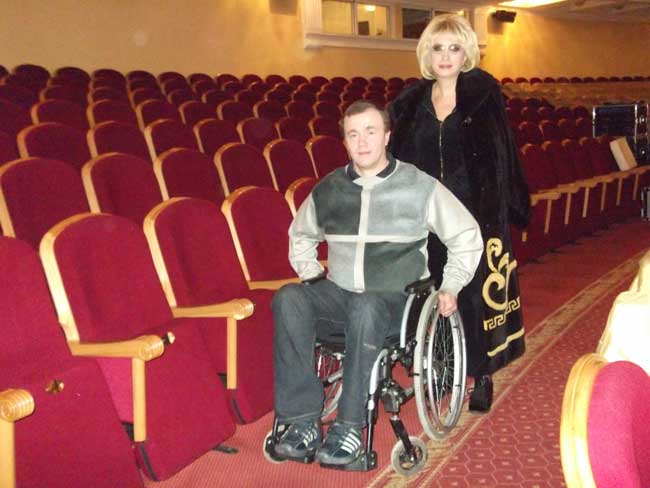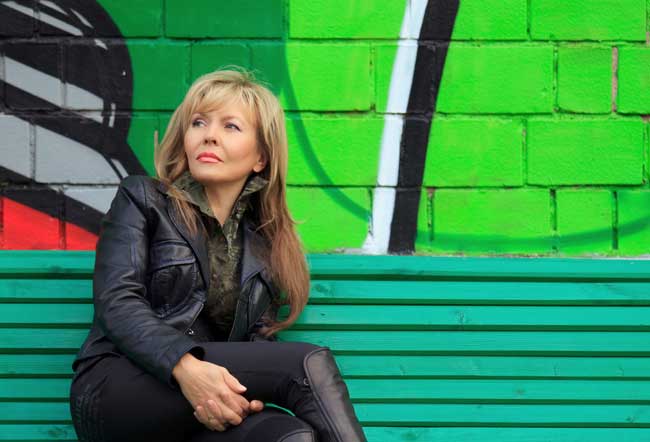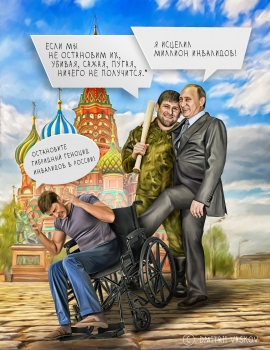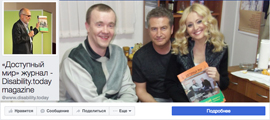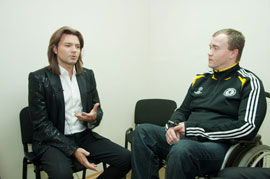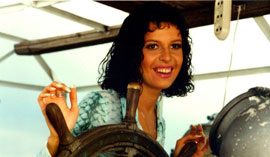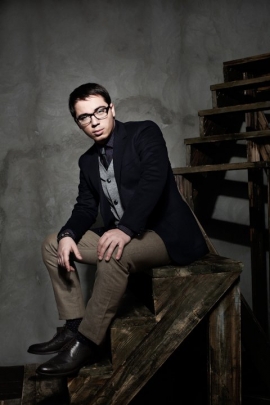Ирина Аллегрова: Не слушай чужих советов, ибо судьба имеет свои законы!

Российская эстрадная певица, актриса, Народная артистка России – Ирина Аллегрова, в эксклюзивном интервью для журнала DISABILITY.TODAY рассказала, как сделать наше общество более толерантным к людям с физическими ограничениями.
ДМ: Что можно предпринять в обществе, чтобы отношение к людям с ограниченными возможностями здоровья было толерантным?
ИА: Когда я бываю на Западе, то вижу, что там человек, находясь, к примеру, в коляске, не ощущает неудобств, потому что все для этого есть. Более того, строятся дома, гостиницы, во всех местах, везде и всегда все делается для людей. У нас, к сожалению, этого пока нет, но очень хотелось бы, чтобы это было. Чтобы новое строилось, а старое переделывалось там, где это не учтено, потому что такие бытовые мелочи очень влияют. Бытовые мелочи влияют даже на совершенно обычного человека, а на человека с ограниченными возможностями - еще больше.
Нельзя, чтобы неудобства, которые испытывают эти люди, наталкивали их на мысль, что с ними что-то не так.
Очень большая часть людей не думает об удобстве ближнего, а думает только о себе. Это очень большая проблема, надо ее решать. Наша страна считается достаточно грамотной и образованной страной, ей зачастую не хватает именно внутренней культуры.
ДМ: На что человеку нужно опереться, попав в трагическую ситуацию? Как найти в себе силы начать жизнь заново?
ИА: Это очень сложный вопрос. Надо опираться на силу воли. Здесь не может быть ни советов, ни моего мнения на этот счет, но, если вы все-таки спрашиваете, мне кажется, что человек должен продолжать жить, найти что-то, из чего можно черпать радость: утро, хорошая погода, солнце светит – и это еще один день счастья самой жизни. Между вопросом, который вы мне задали, можно поставить знак равенства с вопросом «в чем смысл жизни?» Здесь не может быть советов, человеку самому необходимо выбрать внутри себя, как он должен жить, чему он должен радоваться, что ему приносит радость. А если это еще приносит радость и окружающим – так это вообще здорово.
Один мудрец сказал, и я как правило взяла себе это в жизни: «Не слушай чужих советов, ибо судьба имеет свои законы».
ИА: Когда я бываю на Западе, то вижу, что там человек, находясь, к примеру, в коляске, не ощущает неудобств, потому что все для этого есть. Более того, строятся дома, гостиницы, во всех местах, везде и всегда все делается для людей. У нас, к сожалению, этого пока нет, но очень хотелось бы, чтобы это было. Чтобы новое строилось, а старое переделывалось там, где это не учтено, потому что такие бытовые мелочи очень влияют. Бытовые мелочи влияют даже на совершенно обычного человека, а на человека с ограниченными возможностями - еще больше.
Нельзя, чтобы неудобства, которые испытывают эти люди, наталкивали их на мысль, что с ними что-то не так.
Очень большая часть людей не думает об удобстве ближнего, а думает только о себе. Это очень большая проблема, надо ее решать. Наша страна считается достаточно грамотной и образованной страной, ей зачастую не хватает именно внутренней культуры.
ДМ: На что человеку нужно опереться, попав в трагическую ситуацию? Как найти в себе силы начать жизнь заново?
ИА: Это очень сложный вопрос. Надо опираться на силу воли. Здесь не может быть ни советов, ни моего мнения на этот счет, но, если вы все-таки спрашиваете, мне кажется, что человек должен продолжать жить, найти что-то, из чего можно черпать радость: утро, хорошая погода, солнце светит – и это еще один день счастья самой жизни. Между вопросом, который вы мне задали, можно поставить знак равенства с вопросом «в чем смысл жизни?» Здесь не может быть советов, человеку самому необходимо выбрать внутри себя, как он должен жить, чему он должен радоваться, что ему приносит радость. А если это еще приносит радость и окружающим – так это вообще здорово.
Один мудрец сказал, и я как правило взяла себе это в жизни: «Не слушай чужих советов, ибо судьба имеет свои законы».
